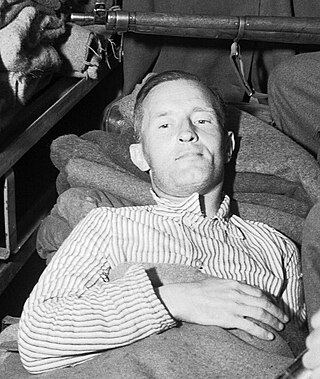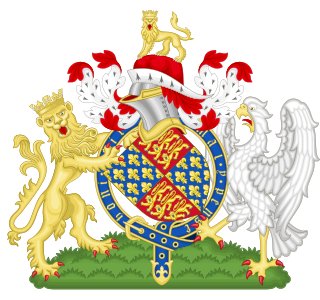The Witchcraft Acts were historically a succession of governing laws in England, Scotland, Wales, Ireland, and the British colonies on penalties for the practice, or—in later years—rather for pretending to practise witchcraft.

Under the law of the United Kingdom, high treason is the crime of disloyalty to the Crown. Offences constituting high treason include plotting the murder of the sovereign; committing adultery with the sovereign's consort, with the sovereign's eldest unmarried daughter, or with the wife of the heir to the throne; levying war against the sovereign and adhering to the sovereign's enemies, giving them aid or comfort; and attempting to undermine the lawfully established line of succession. Several other crimes have historically been categorised as high treason, including counterfeiting money and being a Catholic priest.
The privilege of peerage is the body of special privileges belonging to members of the British peerage. It is distinct from parliamentary privilege, which applies only to those peers serving in the House of Lords and the members of the House of Commons, while Parliament is in session and forty days before and after a parliamentary session.
Petty treason or petit treason was an offence under the common law of England in which a person killed or otherwise violated the authority of a social superior, other than the king. In England and Wales, petty treason ceased to be a distinct offence from murder by virtue of the Offences against the Person Act 1828. It was abolished in Ireland in 1829. It never existed in Scotland. It has also been abolished in other common-law countries.

Arson in royal dockyards and armories was a criminal offence in the United Kingdom and the British Empire. It was among the last offences that were punishable by capital punishment in the United Kingdom. The crime was created by the Dockyards etc. Protection Act 1772 passed by the Parliament of Great Britain, which was designed to prevent arson and sabotage against vessels, dockyards, and arsenals of the Royal Navy.

The Treason Act 1351 is an Act of the Parliament of England wherethrough, according to William Blackstone, common law treason offences were enumerated and no new offences were, by statute, created. It is one of the earliest English statutes still in force, although it has been very significantly amended. It was extended to Ireland in 1495 and to Scotland in 1708. The Act was passed at Westminster in the Hilary term of 1351, in the 25th year of the reign of Edward III and was entitled "A Declaration which Offences shall be adjudged Treason". It was passed to clarify precisely what was treason, as the definition under common law had been expanded rapidly by the courts until its scope was controversially wide. The Act was last used to prosecute William Joyce in 1945 for collaborating with Germany in World War II.

The Treason Act 1695 is an Act of the Parliament of England which laid down rules of evidence and procedure in high treason trials. It was passed by the English Parliament but was extended to cover Scotland in 1708 and Ireland in 1821. Some of it is still in force today.

The Sedition Act 1661 was an Act of the Parliament of England, although it was extended to Scotland in 1708. Passed shortly after the Restoration of Charles II, it is no longer in force, but some of its provisions continue to survive today in the Treason Act 1695 and the Treason Felony Act 1848. One clause which was included in the Treason Act 1695 was later adapted for the United States Constitution.
Treason Act or Treasons Act or Statute of Treasons is a stock short title used for legislation in the United Kingdom and in the Republic of Ireland on the subject of treason and related offences.

The Treason Act 1945 was an Act of the Parliament of the United Kingdom.

The Treason Act 1554 was an Act of the Parliament of England. It is not to be confused with two other Acts about treason passed in the same year, 1 & 2 Ph. & M. cc. 9 and 11.

The Treason Act 1746 was an Act of the Parliament of Great Britain. The long title is "An Act for allowing Persons impeached of High Treason, whereby any Corruption of Blood may be made, or for Misprision of such Treason, to make their full Defence by Council."

The Treason (Ireland) Act 1821 is an Act of the Parliament of the United Kingdom. It extended most of the English Treason Act 1695 to Ireland. Previously the 1695 Act only applied to England and Scotland.

The Treason Act 1547 was an Act of the Parliament of England. It is mainly notable for being the first instance of the rule that two witnesses are needed to prove a charge of treason, a rule which still exists today in the United States Constitution.

The Incitement to Mutiny Act 1797 was an Act passed by the Parliament of Great Britain. The Act was passed in the aftermath of the Spithead and Nore mutinies and aimed to prevent the seduction of sailors and soldiers to commit mutiny.

The Treason Act 1714 or Trial of Rebels Act 1715 was an Act of Parliament of the Parliament of Great Britain passed during the Jacobite Rising of 1715. Its long title was "An act for the more easy and speedy trial of such persons as have levied or shall levy war against his Majesty." It enacted that anyone who was in custody for high treason before 23 January 1716 could be tried anywhere in England, regardless of where they had allegedly committed their crime. Under common law a trial normally had to take place in the county where the crime happened.

The Jurors (Scotland) Act 1745 was an Act of the Parliament of Great Britain, passed during the Jacobite Rising of 1745. Its long title was "An Act for the more easy and speedy Trial of such Persons as have levied, or shall levy War against His Majesty; and for the better ascertaining the Qualifications of Jurors in Trials for High Treason or Misprision of Treason, in that Part of Great Britain called Scotland." It was one of the Juries (Scotland) Acts 1745 to 1869.

The Sheriffs (Scotland) Act 1747 was an Act of the Parliament of Great Britain which applied only to Scotland. It stated that anyone who was prosecuted on or after 1 April 1748 for treason or misprision of treason could be tried anywhere in Scotland if the crime had been committed in any of the shires of Dunbartain, Stirling, Perth, Kincardine, Aberdeen, Inverness, Nairn, Cromarty, Argyll, Forfarshire, Banff, Sutherland, Caithness, Elgine, Ross, and Orkney. Normally a crime had to be tried in the shire where it had been committed. The Act also said that in such a trial, the jurors could come from adjoining counties, instead of the county where the trial was held.

The Treason Outlawries (Scotland) Act 1748 was an Act of the Parliament of Great Britain which applied only to Scotland. Its long title was "An Act to ascertain and establish the Method of Proceeding to and upon Outlawries for High Treason and Misprision of High Treason, in Scotland."









